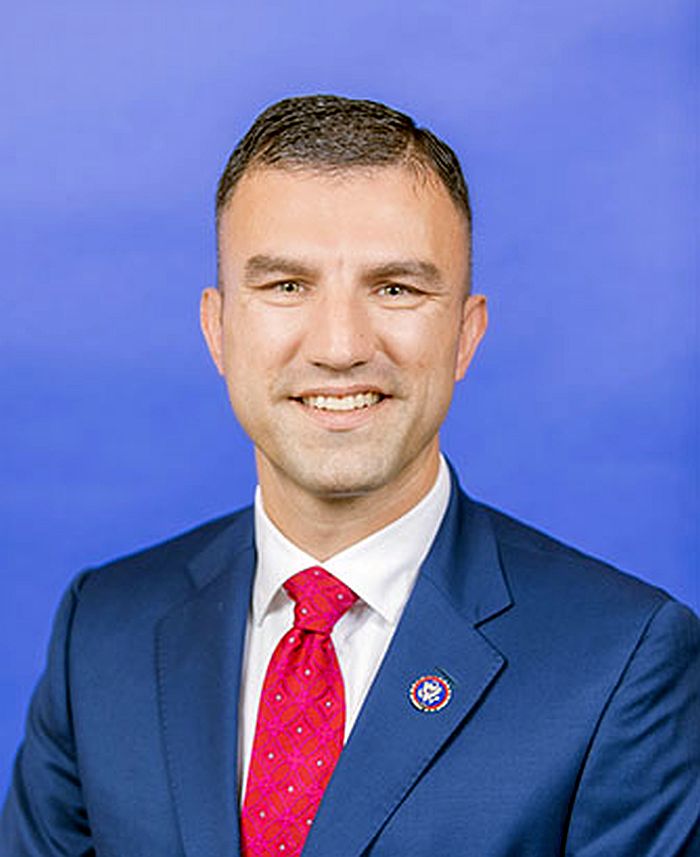Congressman Rudy Yakym (IN-02) released the following statement after introducing H.R. 4956, the Farmer-Informed WOTUS Act along with Congressman Tracey Mann (KS-01) this week:
“Hoosier farmers make some of the best product anywhere in the world, but all too often they have had to contend with heavy-handed federal overreach from the Biden Administration,” said Congressman Yakym. “Nowhere has this been clearer than with this Administration’s overzealous enforcement of the Waters of the United States (WOTUS) rule. Our commonsense legislation is an important way to fight back against federal overreach and support America’s farmers and ag producers by giving them a seat at the table when it comes to policy decisions that affect their lives and livelihoods. I am proud to work with Congressman Mann on this legislation that will help ensure our farmers can continue to feed our nation and the rest of the world.”
“Farmers, ranchers, and agricultural producers know their operations far better than the federal government does,” said Congressman Mann. “They deserve a seat at the table when policies impacting their livelihoods are up for discussion. This legislation would establish a farmer-led advisory committee at the U.S. Department of Agriculture to bring together real-world experience, share insight into how rules like President Biden’s Waters of the U.S. rule negatively impacts agriculture, and offer solutions to eliminate unnecessary red-tape hindering agricultural productivity. I am proud to represent farmers and ranchers in the Big First District, remain committed to hearing their concerns, and am thankful to introduce this legislation alongside Rep. Yakym.”
“The definition of Waters of the United States (WOTUS) is critically important to farmers in Indiana,” said Indiana Farm Bureau President Randy Kron. “Farmers were not a part of the conversation when the Biden administration crafted their newest WOTUS rule, and as a result, Hoosier farmers were left with a threat to their ability to provide affordable and abundant food, fuel and fiber to the citizens of this nation and the world. Thankfully, the U.S. Supreme Court recognized the EPA’s overreach in their decision in Sackett v. EPA, but there is still work to be done. The Farmer-Informed WOTUS Act would guarantee agriculture a seat at the table when discussing WOTUS and ensure farmers are able to voice their concerns when crafting new regulations.”
Background:
- This legislation creates an Advisory Committee for the Waters of the United States rule at the United States Department of Agriculture (USDA).
- Advisory Committee is to be comprised of 32 members (16 from the House/Senate Majority/Minority Leaders; 2 from Farmer Trade Associations; 4 from Covered Commodity Trade Associations; 3 from Specialty Crop Trade Associations; 3 from Livestock Trade Associations; 3 from Poultry Trade Associations; 1 from NASDA)
- Committee is mandated to study the impact of WOTUS on agriculture in general, and in particular:
- The impact of the prior-converted farmland exemption on agricultural operations;
- Common agricultural practices that are not exempted from WOTUS regulations under the Environmental Protection Agency’s (EPA) current activity-based permitting exemptions;
- Cases where multiple EPA bureaucrats came to contradicting rulings for the same / similarly situated tracts of land;
- The impact of WOTUS regulations on secure food supply chains and rural infrastructure;
- How federal WOTUS regulations can be structured to provide a clear, objective “eyesight” test for jurisdictional WOTUS;
- How safe harbor conditions can be developed for farmers who observe common, voluntary conservation practices on their farm
- The Committee is required to report to Congress and relevant agencies within one year of appointment with the results of its study and sunsets after 90 days of the delivery of the report.
- Indiana is the 8th largest state in the U.S. for agricultural exports.











